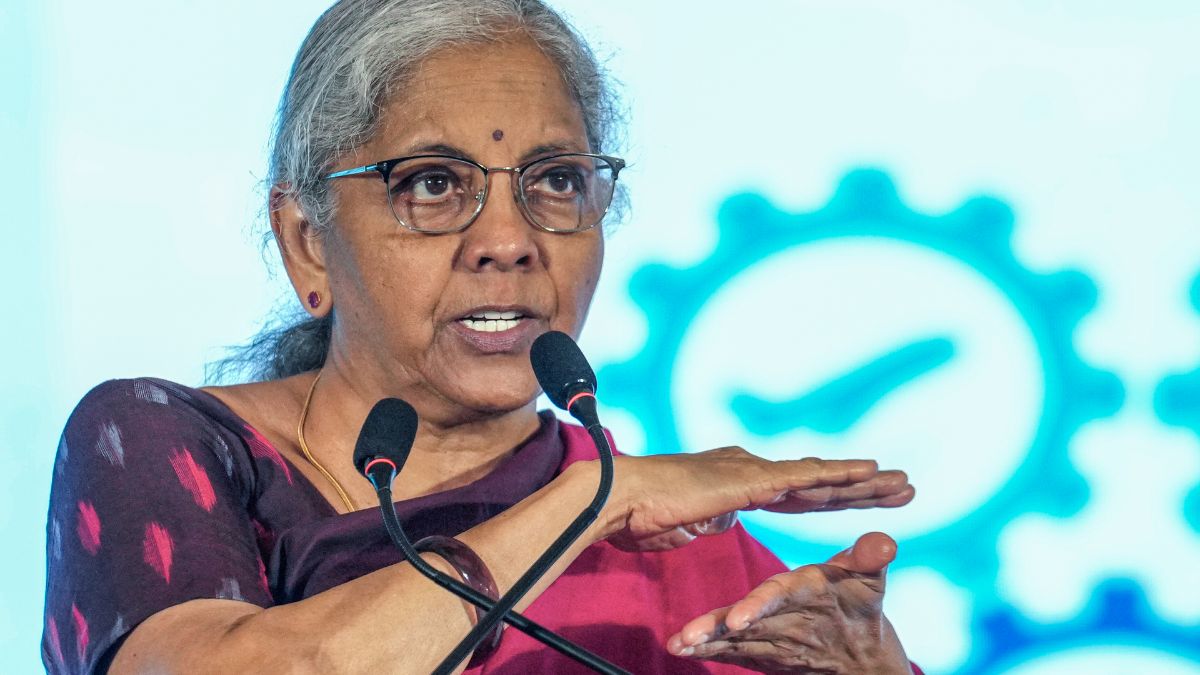The Goldilocks 5: Nirmala Sitharaman’s focus areas to boost Indian economy
 [File] Union finance minister Nirmala Sitharaman addresses the India Exim Bank Trade Conclave 2025 in New Delhi on June 24 2025 | PTI
[File] Union finance minister Nirmala Sitharaman addresses the India Exim Bank Trade Conclave 2025 in New Delhi on June 24 2025 | PTI
The Goldilocks zone refers to an ideal area around a star where the temperature is optimal for water to exist and, in correlation, for life itself. Neither too hot nor too cold, but “just right.”
Or if you go by India’s finance minister Nirmala Sitharaman’s take on it (which itself is taken from a finance ministry review assessment), that’s exactly the zone where India’s economy is after 11 years of reforms by the Modi government.
But the minister’s media outing was more a display of confidence (and a wee bit of pitching to sovereign agencies before their next round of rating) after a series of internal and external assessments put the Indian economy on a sure footing. In fact, RBI’s bulletin this month noted that the world economy was in a ‘state of flux’, but India was well-placed to navigate it with its macroeconomic stability.
“We will continue to be the fastest growing at this number or even better number,” she said, with last year’s GDP growth rate at 6.5 per cent but expected to slow down this year.
Of course, Sitharaman’s gung-ho emanates from the Indian economy’s seemingly Teflon coating—not only have geopolitical strife over the past three years, starting with the Ukraine invasion to recent conflicts in the Middle East, nor Trump-China trade bouts had any mortal impact on India’s economic trotting. Nor has the sustained urban consumption slowdown or even the reluctance of the private sector to invest (despite massive governmental capital expenditure in the years following the pandemic).
The minister, across her various interviews, frankly also outlined the five rough areas where she will be focusing, even while admitting in her usual candour that reforms will continue ‘non-stop’.
1. Goods and Services Tax (GST): The butt of a million memes over her taxing various flavours of popcorn differently, Sitharaman has clearly hinted at the much-awaited simplification of the tax slabs. PM Modi’s reference to it at its launch 8 years ago (tonight is its eighth birthday, incidentally) as a “good and simple tax” has not really worked out that way for businesses. Reducing slabs, she said, is in consideration, though the notorious Sin Tax will remain, and might even go up.
2. Trade deals: “India would love to have a big beautiful pact,” she quipped, taking off on Trump’s contentious Big Beautiful Bill, making it clear that the government and industry have been in consultation over the various deals in the offing (Besides US, India is in talks with EU as well as countries in Europe and South America for multiple free trade agreements).
3. Availability of critical supplies: Geopolitics has seen a sea change, and the immediate threat to India from China is not across the borders, but China’s trade war whereby it has limited India’s access to rare earth minerals, fertilisers, magnets used in automobile manufacturing as well as ingredients that go into Pharmaceuticals. Ensuring supplies do not get interrupted and the India story keeps chugging along in full throttle will take more than the finance ministry’s efforts, but its intervention via duties at the right time will be crucial as trade wars take another turn after July 9.
4. Speed up asset monetisation: From extracting value out of government land to straight out disinvestment, the pro-capitalist Modi government has been surprisingly slow in asset monetisation despite several schemes, the latest in her budget this year in February. It’s simple arithmetic that many such moves will help the government with much-needed capital for its infra projects and capex. Which way the policy will turn is anybody’s guess now, especially with the government depending on regional allies like Telugu Desam for a parliamentary majority.
5. Banking reforms: It’s a bull that needs to be caught by the horns, but the mayhem it could cause has held back many of her predecessors. Sitharaman has voiced her intent, talking about strengthening regional rural banks, as well as categorically stating that IDBI Bank will be privatised this year. She also spoke of a more nimble financial system, with banks more amenable to the needs of the industry and how credit needs to be tailored to the requirements of different segments.
Business